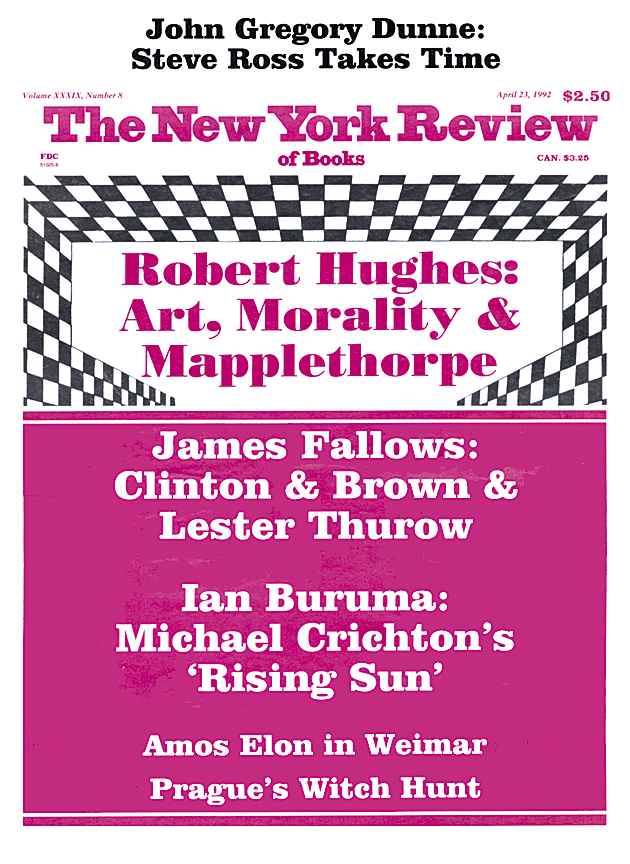American Dream is the flower the documentary film maker Barbara Kopple has laid upon the grave of the strike lost at the Hormel meatpacking plant in Austin, Minnesota, in 1986. It has finally opened in New York, a year after being awarded an Oscar, and will remain here for the uncertain duration of the Angelika Film Center’s patience with empty seats. Those who bother with American Dream will live as close as we have much chance to get these days to the initial exhilarations, the middle torments, and the final disaster of people who were too simple to know that to lift up your head and fight for your dignity is to get your teeth knocked in.
The hopes of the Thirties, the complacencies of the Fifties, and the slumbers of the Seventies are gone past recall for industrial labor. Nothing remains but the breaking of hearts. The Hormel strike was not even about improving the lot of these workers but keeping it from being made worse by the company’s demand for a $2.49 cut in hourly pay. Jim Guyette, Meat Cutter Local P-9’s president, responded by saying, “as Hubert Humphrey used to,” that he “would rather live fifty years like a tiger than one hundred years like a chicken.” The late former vice-president was, of course, never so foolish as to do as he said. Sound heads know better.
Worldly wisdom sat incarnate in the weary person of Lewie Anderson, national negotiator for the United Food and Commercial Workers, Local P-9’s parent international. “They’re going to lose their jobs,” Anderson tells Barbara Kopple’s cameras early on. And then, after the days have gone on and on, and the early laughter has died into hoarse and desperate appeals, he comes to a union hall less populated than it used to be and warns: “When you fight and have lost everything, it’s a terrible price to pay to say that you were tough.”
“Belief,” Jim Guyette stubbornly answers, “will take you a long way.” But it won’t take you far enough when you are all alone. The county sheriff assures the camera that this tragedy is tearing him and the chief of police up. And when the women of Local P-9 sit down to bar passage for their replacements, the cops arrest them. The governor sends in the National Guard. The strike is broken, and yet these pickets soldier on abandoned.
A back-to-work movement begins, smaller than common sense might anticipate. James Morrison returns after months of keeping a faith he had never much held and says that he left a part of himself back at the picket line. To desert is to weep before Barbara Kopple, whose gift is to make us feel almost as kin to the few who quit as to the many who stuck it out. There is no cruelty quite like that which gives a man or woman no choice except the surrender of dignity for a job or of a job for dignity.
Oh well, as International President William Gwynn says when he orders the strikers to go back to the work their company no longer cares to give them: “Our people are just going to have to roll back their wages a little.” Such is the voice that accepts the reality of what America has become, takes its salary, awaits its pension, and bears no grudge except against these meat cutters who dared to think that they could defy the facts of life.
Barbara Kopple has made it rather hard to look at this presidential campaign with the requisite tolerance and detachment. The surviving Democrats arraign George Bush for being unconscious of the pains of ordinary people. Who are they to pretend to be different? He and they are alike, calculating machines. Barbara Kopple’s strikers are losers, and losers don’t count in the calculations, whether they are white pickets in Austin, Minnesota, or black teenagers wasting on city street corners. The next candidate who speaks of a “new industrial policy” ought at least to be asked what will be new about it. You can be sure it won’t be fairness.
This Issue
April 23, 1992


